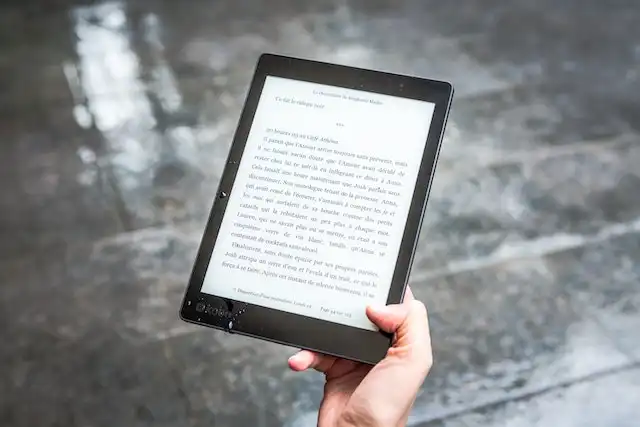In an era of rapid technological advancement, the way we engage with literature is undergoing a transformative shift. Technology has revolutionized the way we access, consume, and interact with written content, impacting our reading habits and shaping the future of literature itself. This article explores the profound influence of technology on reading habits and offers insights into how the evolving landscape may impact the world of literature in the years to come.
- Digital Reading Platforms: A New Frontier
The rise of digital reading platforms and e-books has fundamentally changed how we access and experience literature. Readers can now carry entire libraries in their pockets, allowing for easy access to a diverse range of books anytime, anywhere. The convenience of e-books has led to increased consumption, particularly among individuals who prefer the flexibility and portability of digital formats.
Impact: Digital reading platforms have democratized access to literature, making it more accessible to a global audience. This shift in accessibility has the potential to diversify reading preferences and introduce readers to a wider array of genres and authors.
- Interactive Reading Experience
Technology has transformed reading from a passive to an interactive experience. Enhanced e-books, audiobooks, and multimedia elements allow readers to engage with content in new and dynamic ways. Features like audio narration, animations, and hyperlinks provide a more immersive and engaging reading experience.
Impact: The interactive nature of modern reading encourages greater engagement, especially among younger generations who are accustomed to multimedia-rich environments. This trend may shape the development of literature, leading to the creation of more interactive and multimedia-enhanced storytelling.
- Changing Attention Spans
The proliferation of digital devices has led to concerns about declining attention spans. The ease of switching between tasks and constant exposure to notifications may impact readers’ ability to engage deeply with longer, more complex literary works.
Impact: Authors and publishers may adapt to changing attention spans by crafting shorter, more concise narratives that cater to modern reading habits. Additionally, literature that encourages mindfulness and focused engagement could gain prominence as a counterbalance.
- Online Communities and Social Reading
Technology has fostered the growth of online communities and social reading platforms where readers can discuss, share, and review books. Social media platforms, book clubs, and reading apps enable readers to connect with others who share their literary interests.
Impact: The digital book-sharing culture can lead to greater word-of-mouth promotion, expanding the reach of authors and books. Additionally, real-time discussions and interactions may shape readers’ interpretations and understanding of literary works.
- Challenges and Opportunities for Authors
Technology has created both challenges and opportunities for authors. On one hand, self-publishing and online platforms provide authors with more avenues to showcase their work. On the other hand, the oversaturation of digital content and the constant demand for new material can make it difficult for authors to capture readers’ attention.
Impact: Authors may need to adapt their writing styles to cater to digital consumption patterns, incorporating shorter chapters or serialized formats. The ability to directly engage with readers through social media and online platforms offers authors a unique chance to build a loyal fan base and gather feedback.
- Preservation and Accessibility
The digital age raises questions about the preservation and accessibility of literary works. As technology evolves, there is a need to ensure the longevity of digital formats and platforms to safeguard literary heritage for future generations.
Impact: Efforts to preserve digital literature may influence the development of new archiving and preservation techniques. Additionally, advancements in virtual reality and augmented reality could lead to innovative ways of experiencing classic literature in immersive formats.
Conclusion
The influence of technology on reading habits is undeniable, reshaping the way we consume, interact with, and think about literature. While traditional forms of reading remain cherished, the integration of technology has expanded the possibilities for storytelling and engagement. As the future of literature continues to evolve, authors, publishers, and readers alike have the exciting opportunity to embrace new forms of expression, connectivity, and creative exploration. The key lies in harnessing the power of technology to enhance, rather than replace, the timeless magic of storytelling.



